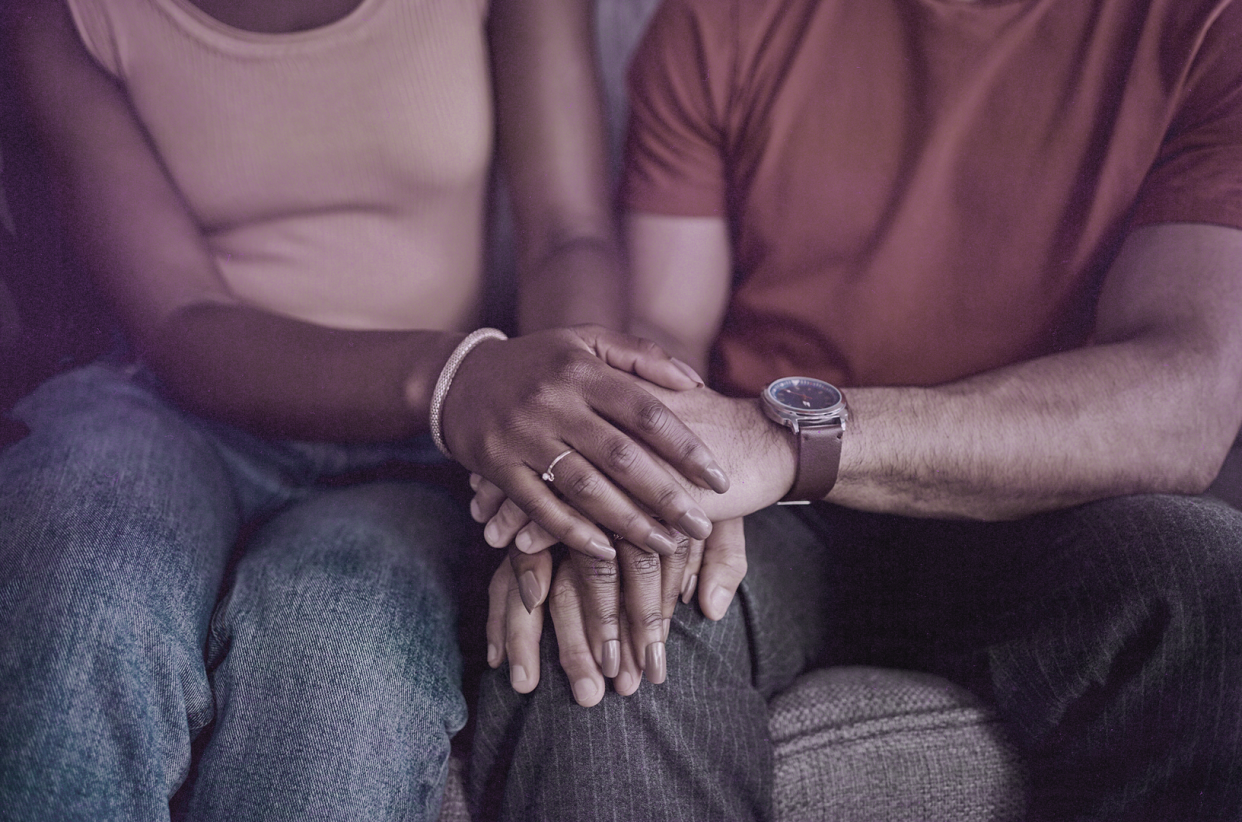Anxious in relationships? You’re not alone. Here’s how to deal.

You’re scrolling through Instagram when you see that your partner’s ex liked their latest photo. You check out the former flame’s profile, and, of course, the latest pic is her posing by the pool. You forgot how pretty she is. Now, you’re obsessing over your own attractiveness and worth.
Or maybe you’re happily in a relationship, and everything is going well. But, for whatever reason, you find yourself worrying that they’ll leave you.
Welcome to the world of relationship anxiety.
Relationship anxiety is not a formal diagnosis but can be defined as “intense worry about intimate and/or platonic relationships,” says Kristen Casey, a licensed clinical psychologist and author of Life Lessons to Master Before You Die. Although the feelings that come with relationship anxiety are fairly common, they can be harmful to a relationship. Relationship anxiety is, at its core, based out of fear and, depending on the person, it can manifest in a number of different ways.
People with relationship anxiety are often afraid of commitment, expressing their needs or being abandoned by their partner, Casey tells Chegg. There’s a great deal of worrying that takes place, and they “may want to spend more time with their partner when they notice feelings of worry creep in,” she says.
That might not seem like such a bad thing, but, Casey explains, it’s not helpful for the relationship or the person’s ability to manage their own anxiety. That’s why it’s so important to learn healthy coping skills.
“All feelings are valid, not all behaviors are.”
Here are some tips on coping with relationship anxiety.
1. Be upfront about your anxiety
If you struggle with relationship anxiety, chances are you’re well aware of those feelings and how you handle them. Your partner, on the other hand, probably doesn’t realize it, and when a bout of anxiety inevitably comes to the surface, they’ll be blindsided.
Instead of letting that happen, be upfront about your anxiety. It doesn’t need to be an intense conversation, just make sure to find a time when your partner is available to listen. A simple, “Hey, I wanted to talk to you about something that I struggle with from time to time. Do you have a minute?” will suffice.
While it can feel scary and uncomfortable to open up about mental health, especially with someone you’ve just started dating, it’ll ultimately be worth it. You’ll know that you’ve taken an important step, and they’ll know what to expect.
2. Tell your partner what you need
One of the most important things in any relationship is communication. When you talk to your partner about your anxiety, be sure to tell them about your needs in general and in times of anxiety. Everyone has their own wants and expectations within a relationship, particularly when it comes to communication. Be open with your partner about how often you like to talk, text and spend time together.
Let your partner know what they can do to show support when you are experiencing anxiety. Is there something specific that helps you during an anxiety attack? Perhaps you’re someone who needs verbal reassurance. Maybe you seek physical comfort or a chance to vent. Take some time to reflect and determine what you need, so you can share that information with your partner.
3. Don’t be afraid of appearing “needy”
While some people might push their partner away when anxiety hits, many do the opposite and start to feel a little clingy — calling multiple times, asking for validation repeatedly or expressing unfounded worries. Afterward, once the anxiety has subsided, embarrassment can kick in.
But shame has no place here. Try not to worry about seeming “needy” if extra reassurance is what you need. When we have relationship anxiety, we’re likely to ruminate, but, as Casey explains, a partner can provide an outside perspective and get us out of our heads. Reassurance “validates our experience and makes it easier to experience self-compassion if we’re struggling,” she adds.
4. Develop a plan together
While it’s important to express your needs, it’s also important to understand that your partner has needs, too. You might struggle with anxiety, but you’re not the only person in the relationship. Make sure to take the time to find out your partner’s relationship expectations and how they handle stress.
You might be the kind of person who wants to resolve arguments quickly to soothe your worries, but what if your partner needs space to cool off? Compromise is key. In this case, you could consider taking a set amount of time to simmer, an hour of reflection.
Decide what seems doable and beneficial for both of you.
5. Work on your own mental well-being
Finally, although it can be helpful to ask for reassurance when you need it, doing so excessively can cross a line in your relationship. You want to avoid making your partner feel as if they are beholden to your needs and unable to set boundaries of their own. It’s perfectly acceptable to expect your partner to be empathetic and supportive, but it’s not their job to fix your anxiety. You have to work on yourself.
So, along with respecting their needs, it’s crucial to work on your own issues. Seek therapy, talk to friends and spend some time learning how to self-soothe. Casey suggests journaling, as it can offer us a “space to explore thoughts and feelings before we decide to communicate with our partner.”
View the original article at Chegg Life and signup for the Chegg Life Newsletter
Related...

